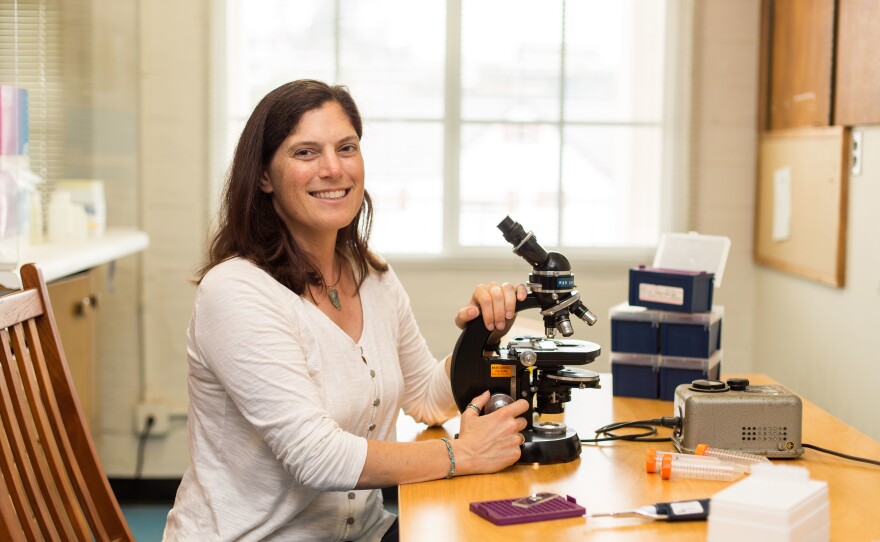A chemist at the Scripps Research Institute in La Jolla and a California Institute of Technology geobiologist who grew up in San Diego are among those receiving MacArthur fellowships this year.
Unofficially known as a "genius grant," the award provides $625,000 with no strings attached, to individuals "who have shown extraordinary originality and dedication in their creative pursuits and a marked capacity for self-direction."
Scripps chemist Jin-Quan Yu was awarded a fellowship for his work on exploring new and more efficient ways to break inert carbon-hydrogen (C-H) bonds in organic molecules. In a video posted on the MacArthur Foundation’s website, he says breaking these bonds — which can be thought of as atoms shaking hands — is a difficult challenge.
"It turns out it's such a strong handshake," he said. "We just can't separate them. They love each other."
Yu describes his goal of creating new molecules using modified amino acids and other strategies for manipulating C-H bonds.
"I'm studying how to break C-H bonds under very practical conditions, which could potentially change the way we make molecules," he says in the MacArthur video.
"These reactions will transform the way we make molecules for medicine, agrochemicals or perfumes."
California Institute of Technology geobiologist Victoria Orphan, another 2016 MacArthur Fellow, is a San Diego native who says growing up near the ocean kindled the interests she continues to explore in her research today.
"I've wanted to be involved in marine science since I was a little girl," Orphan told KPBS. "Being close to the ocean — witnessing its power and this rich life that was basically at my back door — was always fascinating to me."
Orphan's research looks into deep-sea microbes. The single-cell microorganisms she studies thrive in extreme environments and can be difficult to study in the lab. Orphan and her colleagues have a particular interest in microbes that live on methane, a powerful greenhouse gas released from seeps in the ocean floor.

She said, "The microorganisms that we study are able to tap into that methane and use it as an energy source, and basically consume it before it gets up into the water column and into the atmosphere. So they are truly a very critical biological filter."
Orphan says growing up in Leucadia provided her with opportunities to explore her interest in science at a young age. She recalls being mentored by people at the Scripps Institution of Oceanography and participating in educational programs put on by the Birch Aquarium.
"They had a junior oceanographer group that would allow us to go to the tide pools and see life," she said. "All of those things have left a lasting imprint in my mind."
Other 2016 MacArthur Fellows include Caltech microbiologist Dianne Newman and Stanford University physical biologist Manu Prakash.






